The jerseys are now on sale.
The practice and pre-tournament schedules are set.
The international flights have been booked.
And so the clock ticks ever steadily toward the start of the World Cup of Hockey. In fact, one month from Wednesday the tournament -- which runs Sept. 17-Oct. 1, every game being at the Air Canada Centre in Toronto -- will begin with a doubleheader featuring Team USA and Team Europe in a matinee, and the Czech Republic taking on host Canada in the late game.
Here's a look at the biggest question facing each of the tournament's eight teams.
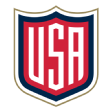
Team USA
Which elite goalie will carry the load?
Sure, there will be questions about where the scoring will come from and whether Brandon Dubinsky will indeed drive Sidney Crosby crazy starting when the U.S. and Canada meet on Day 4 of the tournament. But the real question is which of the American's three elite goalies will be the No. 1? You can certainly make a case for Jonathan Quick, he of the two Stanley Cup rings and a playoff MVP trophy to boot, to be the man, although he was merely OK in the Los Angeles Kings' first-round playoff loss to the San Jose Sharks this past spring. Two-time Vezina Trophy finalist Ben Bishop, who has guided the Tampa Bay Lightning to the Stanley Cup finals and Eastern Conference finals the past two seasons, has emerged as a money goalie, and Cory Schneider of the New Jersey Devils just might be the most technically sound of the three. No team in this tournament boasts as much depth in goal but picking the right goalie at the right time will be a key to Team USA's ultimate success.
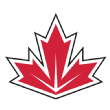
Team Canada
Will Price, Seguin and Benn be ready?
Winners of the last two Olympic gold medals, the hosts certainly will be favored to win the World Cup while playing on home ice. As they should be. But one potentially vexing problem will be the health of key pieces of an impressive lineup. Carey Price, so dominant at the Sochi Olympics in giving up only three goals in five games with two shutouts, is coming off an injury-shortened season that saw him last play in late November. Then there are the Dallas Stars' two stars: Tyler Seguin, who missed all but one of the last 23 games because of a partially torn Achilles tendon, and captain Jamie Benn, who is recovering from offseason abdominal surgery. Seguin told ESPN.com he's expecting to be fully ready for the World Cup. As for Benn, a member of the Sochi gold-medal team in 2014, he is also hopeful of being in the Canadian lineup next month. Still, thoss are lots of ifs for three key Canadian contributors.
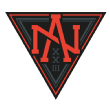
Team North America
What kind of difference will Matthews make?
We've gone from seeing Auston Matthews being a long shot for making the squad to now wondering just what kind of impact the No. 1 overall pick in June might have in the tournament with this speedy, talent-laden group of under-24s. The belief is that Matthews might start the tournament as the extra forward, but it would seem a shame not to have him in the lineup for the first game at the Air Canada Centre, given he was selected by the Toronto Maple Leafs. And I go back to comments made by a Canadian scout at the World Championships last spring who talked about Matthews' emergence as a difference-maker and being a threat on almost every shift. My guess is that if the young stars are to prove a spoiler, or even more, Matthews will be a key factor.
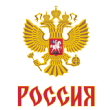
Team Russia
Will lack of depth on D spell an early exit?
Nobody has the firepower up front that the Russians have with Vladimir Tarasenko, Alex Ovechkin, Evgeni Malkin, Evgeny Kuznetsov and Pavel Datsyuk. But can anyone in the country play defense? Without Slava Voynov, banned from the tournament after charges of spousal abuse eventually forced him to leave North America for Russia a year ago, the Russian blue line is thin, which is an insult to thin things everywhere. Andrei Markov, 37, is the cornerstone of a group that includes young but unproven NHLers Alexey Marchenko of the Detroit Red Wings, Nikita Zaitsev of the Maple Leafs and Nikita Nesterov of the Lightning who replaced Voynov on the Russian roster. If this young group can come together quickly and get the puck to the Russian arsenal up front, this team could win it all. If not, well, this could get ugly early.

Team Sweden
Can they beat the favorites?
Outside of Canada, no team boasts as complete a roster as the Swedes. No surprise, given that they were the silver medalists in Sochi, losing to Canada in the gold-medal game. The Swedes are blessed with all kinds of skill, great two-way forwards and superlative goaltending, not to mention leadership in spades with the Sedin twins, Henrik and Daniel, captain Henrik Zetterberg, Niklas Kronwall and two-time Norris Trophy winner Erik Karlsson. So, what's to worry about? Like all contenders, they have to get over the mental hurdle of not only playing Canada but beating Canada on its home ice. The Swedes, who play in the deeper of the two preliminary pools, won't play Canada until elimination time either, in a single-game semifinal or in the best-of-three finals. Given how easily Canada handled Sweden in the gold-medal game in Russia, I'm not sure that's necessarily a good thing.
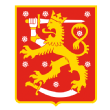
Team Finland
Who's going to score?
The Finns always find a way to be in the mix at these best-on-best shindigs, as witnessed by their bronze-medal performance in Sochi, and this tournament should be no different. Plus, the smaller ice surface in North America should play to the Finns' strengths as a hard-nosed and tough-checking unit. Opponents will be hard-pressed to score, with the Nashville Predators' Pekka Rinne expected to shoulder the load in goal, but can the Finns generate enough offense to keep pace? Only one player on the roster, Aleksander Barkov, scored more than 20 goals last season (he had 28). And no player on the roster had more than Jussi Jokinen's 60 points. That's going to put a lot of pressure on rookie and No. 2 overall pick Patrik Laine and the rest of the Finnish forwards to produce consistently. Too much pressure, perhaps.

Team Europe
Can they bond quickly?
Of all eight teams, this might be the most difficult to get your head around. The Euros have terrific talent and experience on the blue line, with Roman Josi, Mark Streit and Zdeno Chara, and lots of skill and grit up front in Anze Kopitar, Mats Zuccarello and Marian Hossa. But can this group of disparate players from disparate nations come together quickly enough to knock off the big boys? There's lots of pressure on former Swiss national coach Ralph Krueger and his staff, which includes Winnipeg Jets head coach Paul Maurice, to forge an instant identity in the locker room. If the players can find some kind of cohesion through the short training camp and pre-tournament schedule, this collection of international leftovers has a shot at making a dent. But that's a big if.
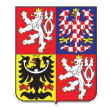
Czech Republic
Can their goalie be the difference?
Let's be blunt: The Czechs are the least equal of the eight teams. While they're solid down the middle, with Tomas Plekanec and David Krejci leading the way, their blue line is Russia-thin. And that brings us to the key question: Which of the Czech goalies has a shot at channeling Dominik Hasek and guiding the Czechs to unexpected success? The safe bet is Petr Mrazek, who recently signed an extension with the Detroit Red Wings, but let's not forget the magic of Michal Neuvirth in the first round of the playoffs, when he helped an undermanned Philadelphia Flyers team push the Presidents' Trophy-winning Washington Capitals to six games, stopping an incredible 103 of 105 shots after replacing Steve Mason.
